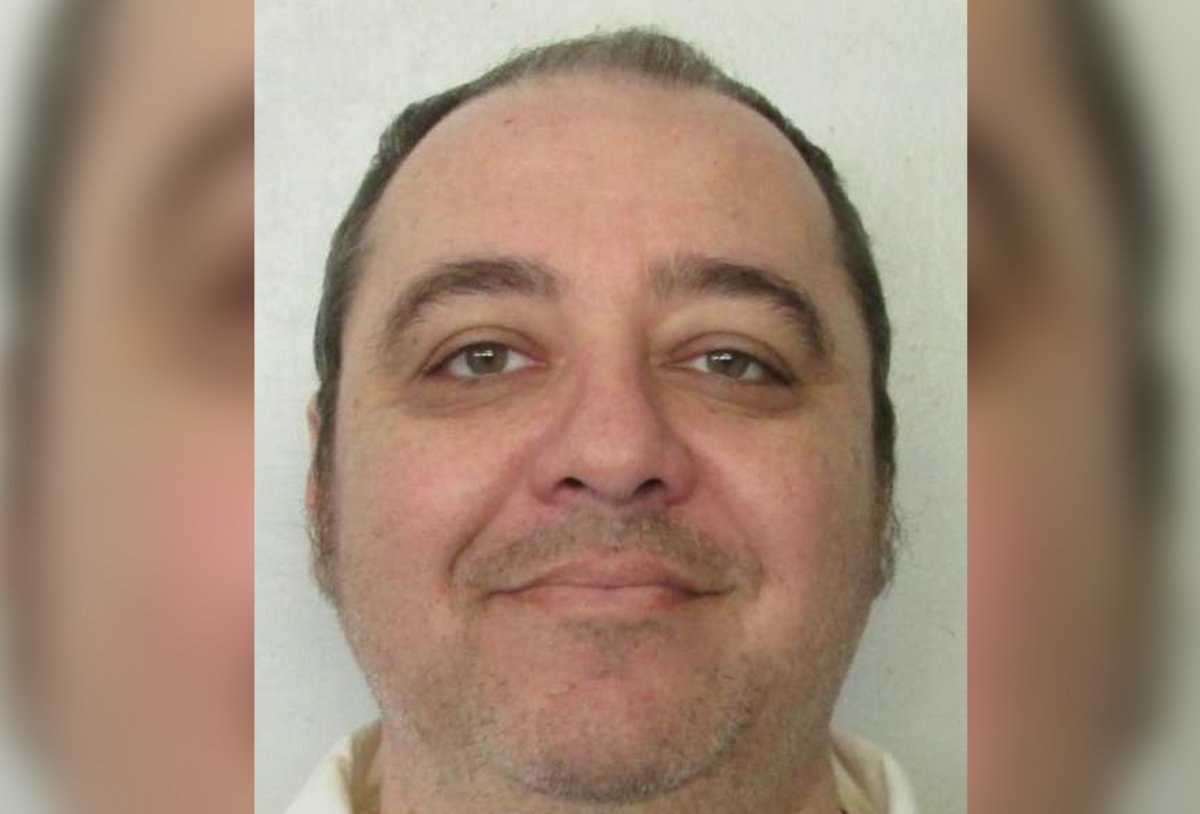A federal judge's decision allowing Alabama to put an inmate to death with nitrogen gas later this month has sparked outrage.
On Wednesday, U.S. District Judge R. Austin Huffake rejected Kenneth Eugene Smith's request for a preliminary injunction to stop his scheduled January 25 execution by nitrogen hypoxia. Smith, 58, was one of two men convicted of the 1988 murder-for-hire slaying of a preacher's wife. Prosecutors said the men were each paid $1,000 to kill Elizabeth Sennett on behalf of her husband.
Huffaker's ruling paves the way for what would be the country's first execution by nitrogen hypoxia, a method that has never been used before to carry out a death sentence and which experts have warned could go horribly wrong.
Smith's attorney, Robert Grass, told the Associated Press that he will appeal the decision, and the matter could end up before the U.S. Supreme Court. He has been contacted for further comment via email.

The Rev. Dr. Jeff Hood, Smith's spiritual adviser who is planning to be with Smith during his execution, said the ruling was shocking.
"Horror is an understatement. The State of Alabama now has the permission of a federal court to suffocate its citizens," Hood said in a statement provided to Newsweek. "Let there be no doubt, we will resist such tyranny until we can resist no more."
Death penalty opponents have echoed that sentiment.
"Fourteen months ago, Alabama executioners tortured Kenny Smith for hours before sending him back to his cell alive," said Abraham Bonowitz, the executive director of Death Penalty Action, referring to Alabama's failed attempt to execute Smith via lethal injection in 2022.
"The eyes of the world are on Alabama yet again as it experiments with this new form of the gas chamber called nitrogen hypoxia."
Experts appointed by the United Nations Human Rights Council earlier in January have also expressed alarm over Smith's upcoming execution, accusing Alabama of rushing ahead with an experimental method that they said would likely violate the prohibition on torture and other cruel, inhuman or degrading punishment. "We are concerned that nitrogen hypoxia would result in a painful and humiliating death," they said.
Alabama Attorney General Steve Marshall welcomed Wednesday's decision, saying it moves the state a step closer to "holding Kenneth Smith accountable for the heinous murder-for-hire slaying" of Sennett.
"Smith has avoided his lawful death sentence for over 35 years, but the court's rejection today of Smith's speculative claims removes an obstacle to finally seeing justice done," Marshall said in a statement.
Alabama's protocol says a mask will be fitted over an inmate's face and a pulse oximeter, a device to measure a person's heart rate and oxygen levels in the blood, will be secured on them. Then, they would be forced to breathe only nitrogen, causing them to die from lack of oxygen.
Marshall's office argued that the deprivation of oxygen would "cause unconsciousness within seconds, and cause death within minutes," AP reported.
But Smith's attorneys argue Alabama is seeking to make Smith the "test subject" for an untested execution method. They say the state's protocol features potential problems and violates the U.S. Constitution's ban on cruel and unusual punishment.
In his ruling on Wednesday, Huffaker acknowledged that execution by nitrogen hypoxia is a novel method, but said that lethal injection was also once new. Lethal injection is now the most common method of execution in the country, and while Alabama, Mississippi and Oklahoma have authorized nitrogen hypoxia as an execution method, none has used it.
Huffaker also said that the theoretical risks of pain and suffering under Alabama's protocol do not rise to a violation of the Constitution.
"Smith is not guaranteed a painless death," Huffaker wrote. "On this record, Smith has not shown, and the court cannot conclude, the Protocol inflicts both cruel and unusual punishment rendering it constitutionally infirm under the prevailing legal framework."
Huffaker also wrote that there is "simply not enough evidence to find with any degree of certainty or likelihood that execution by nitrogen hypoxia under the Protocol is substantially likely to cause Smith superadded pain short of death or a prolonged death."
Uncommon Knowledge
Newsweek is committed to challenging conventional wisdom and finding connections in the search for common ground.
Newsweek is committed to challenging conventional wisdom and finding connections in the search for common ground.
About the writer
Khaleda Rahman is Newsweek's Senior News Reporter based in London, UK. Her focus is reporting on abortion rights, race, education, ... Read more
To read how Newsweek uses AI as a newsroom tool, Click here.






